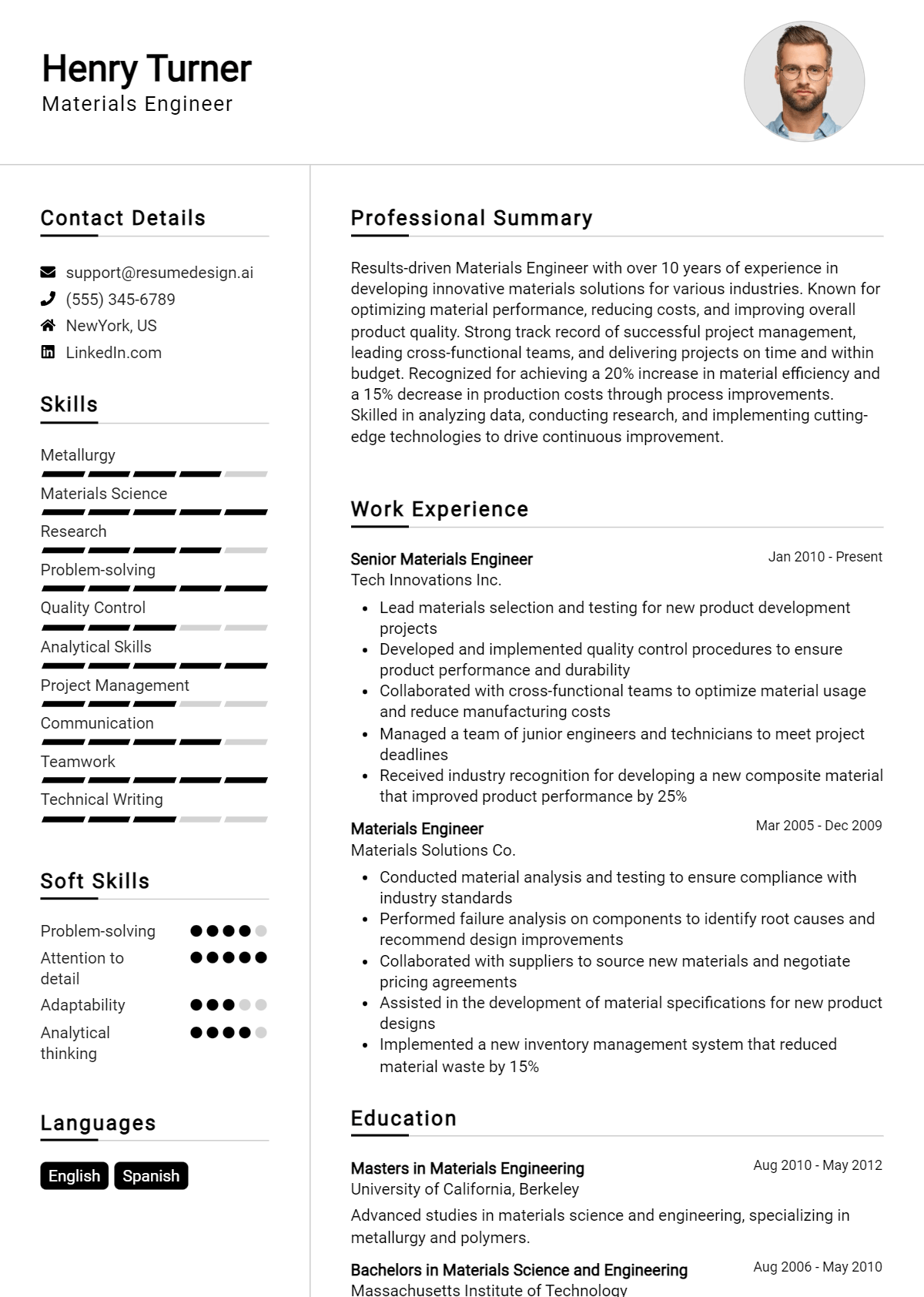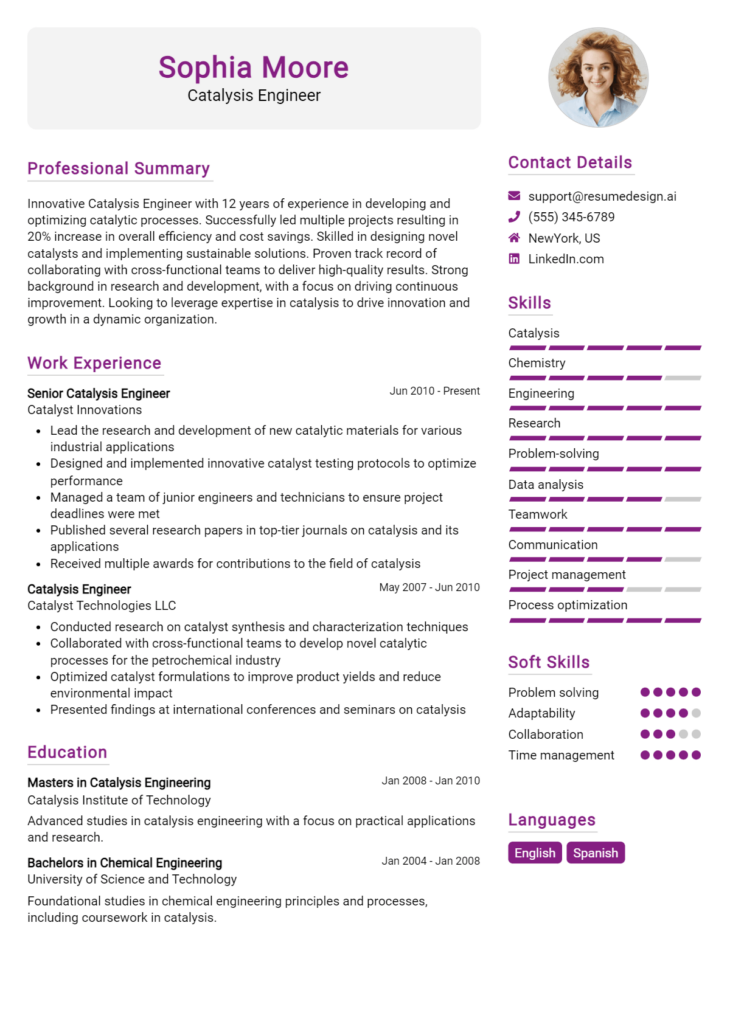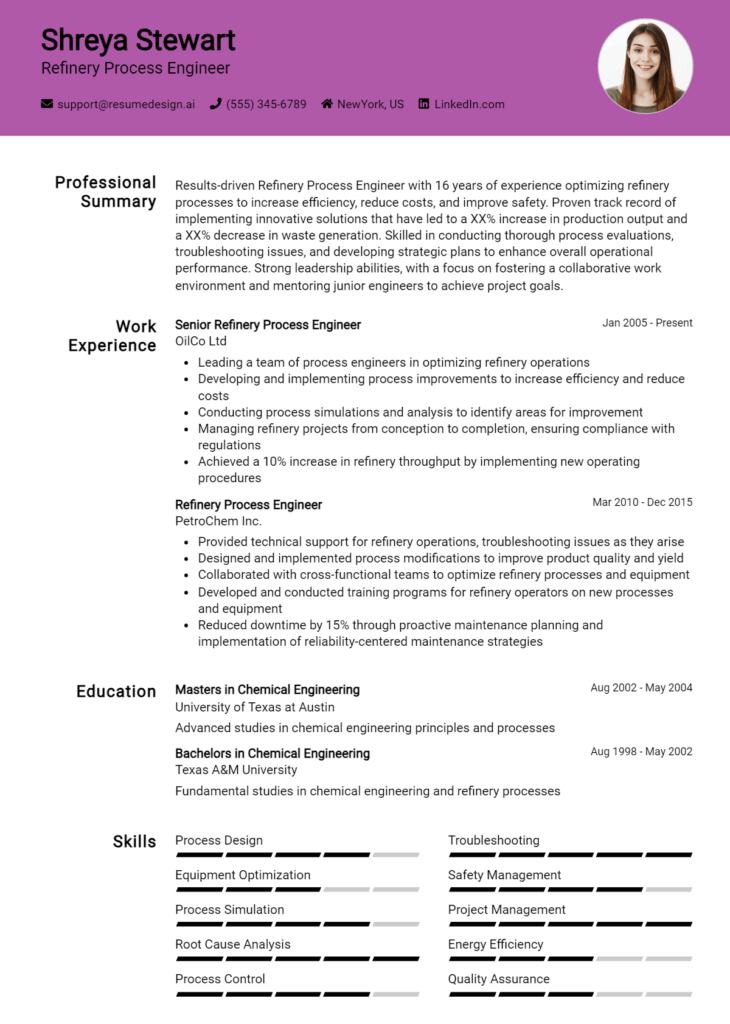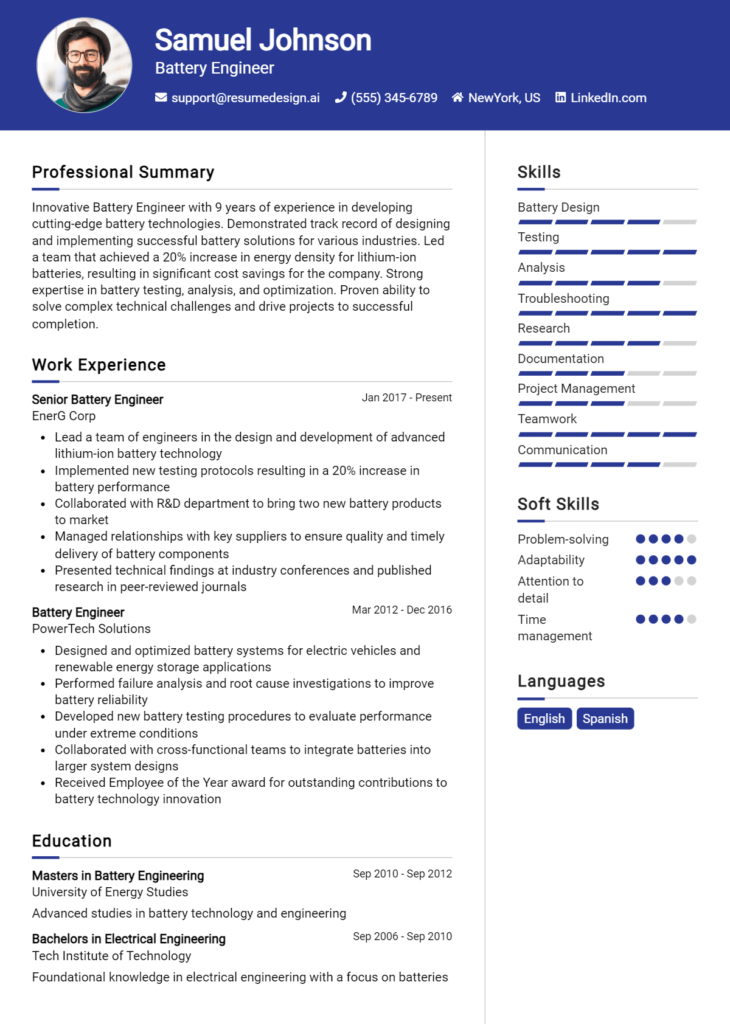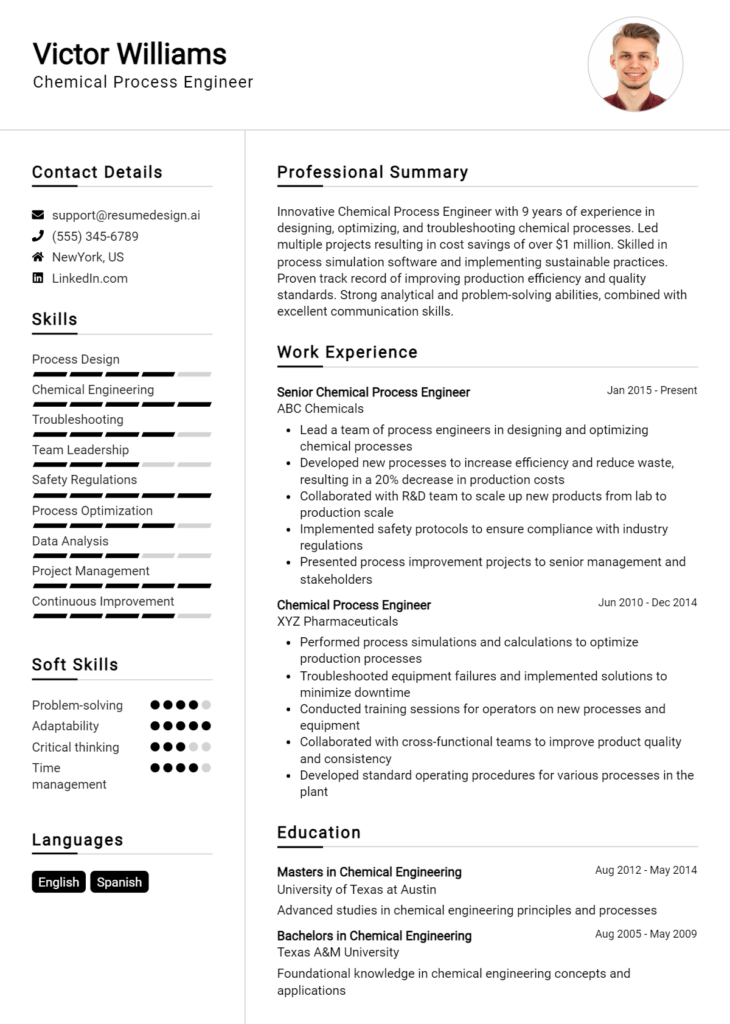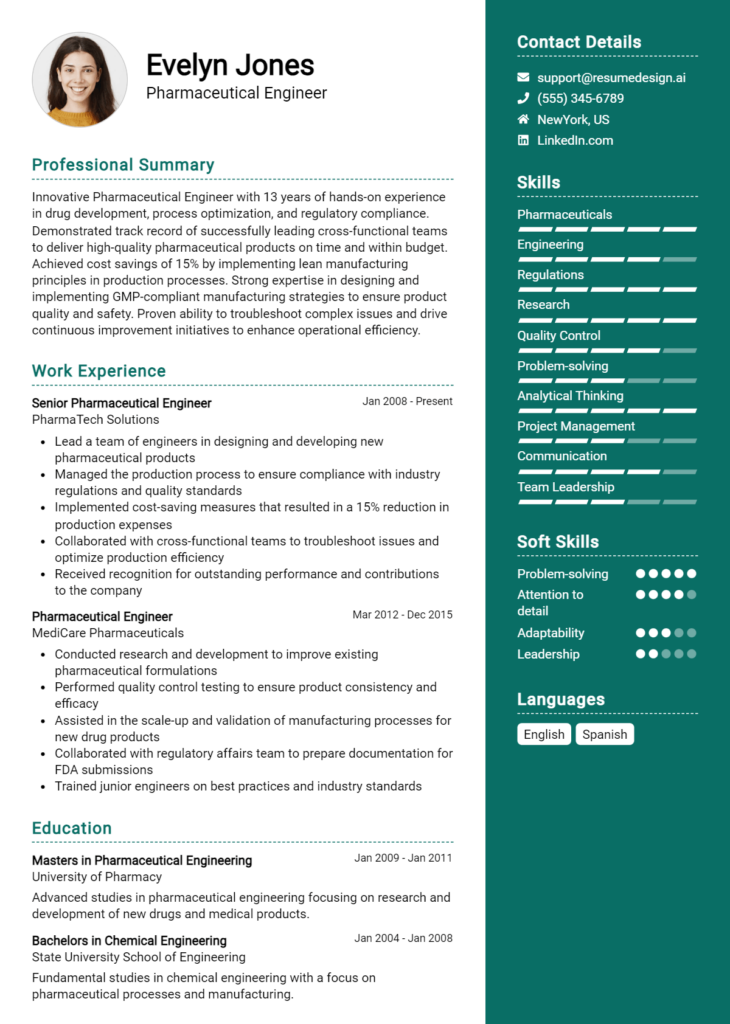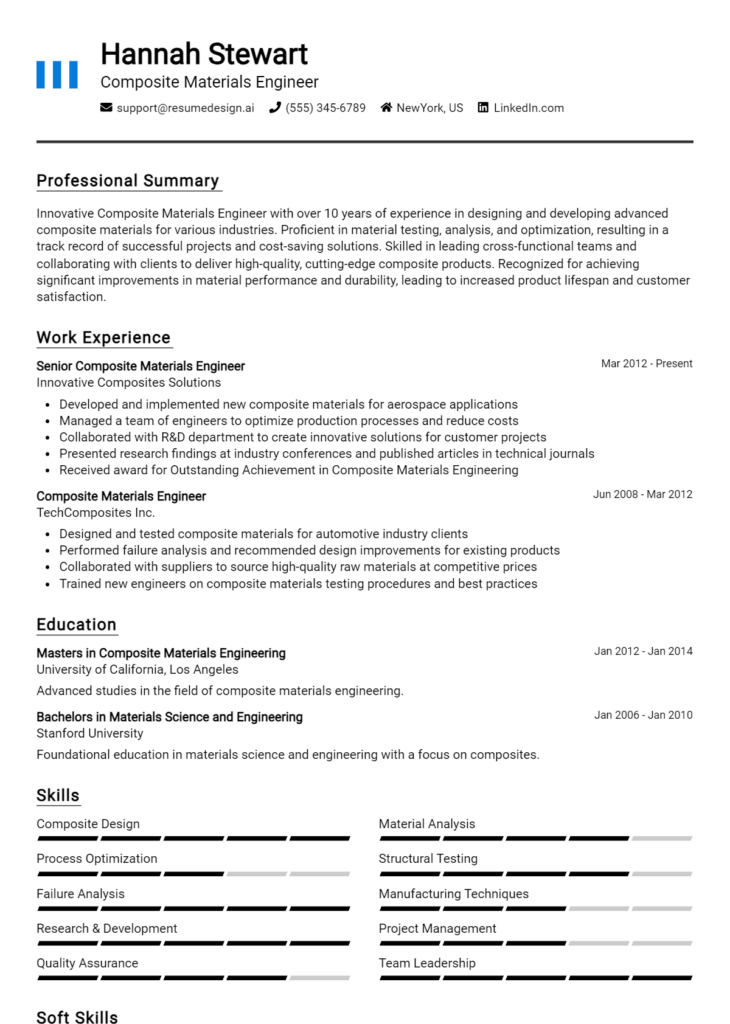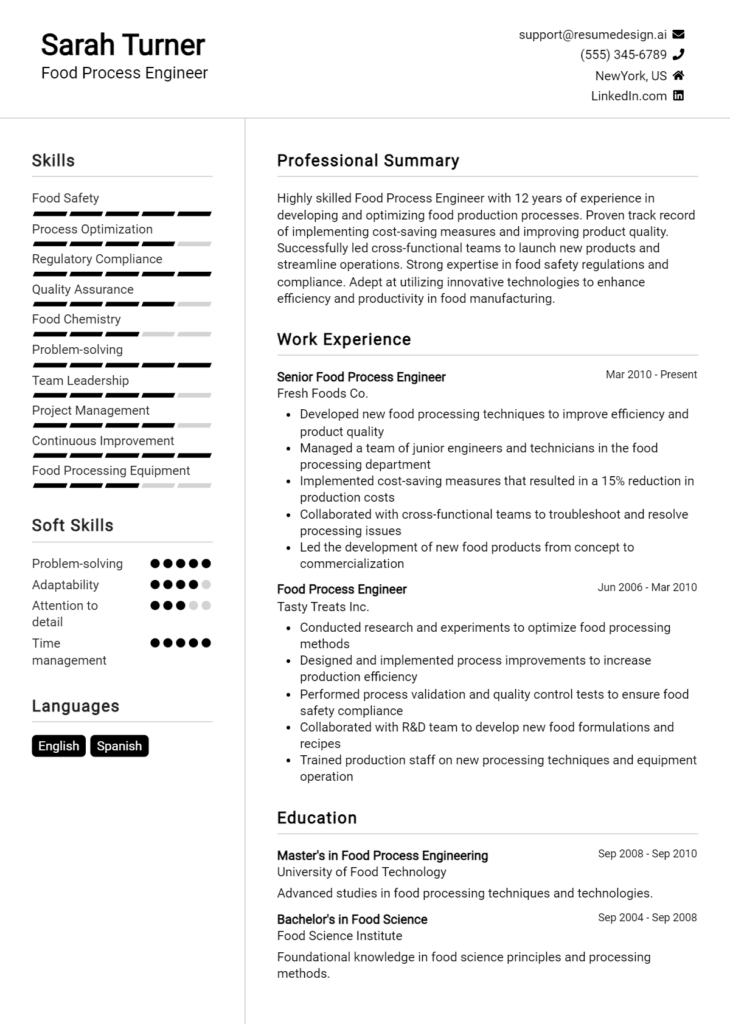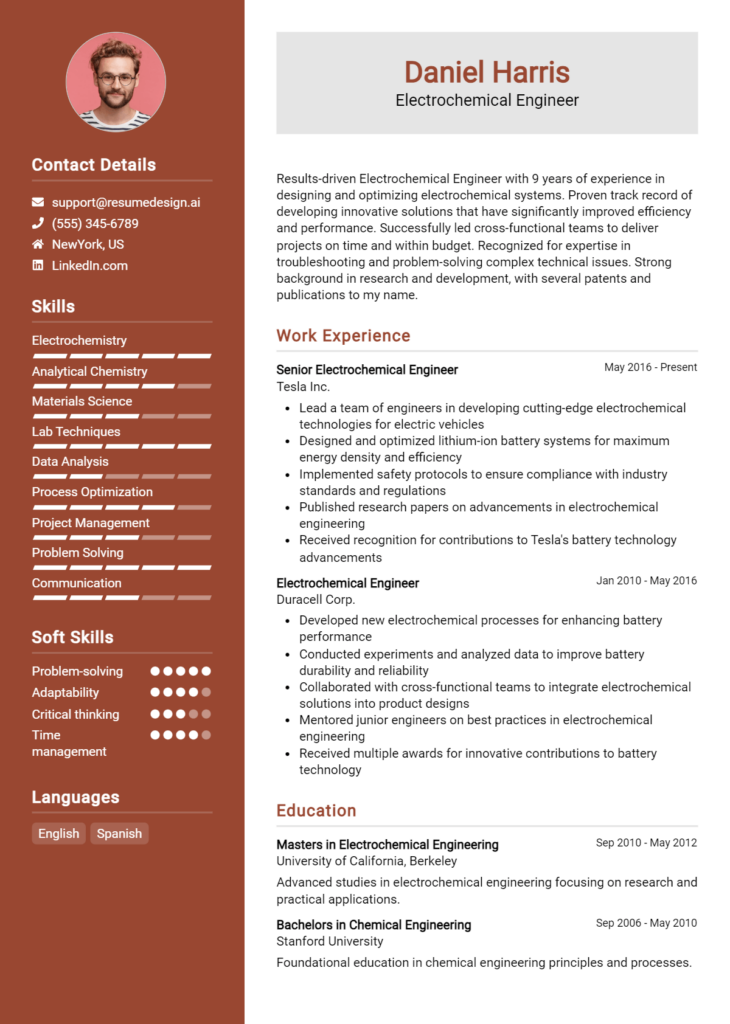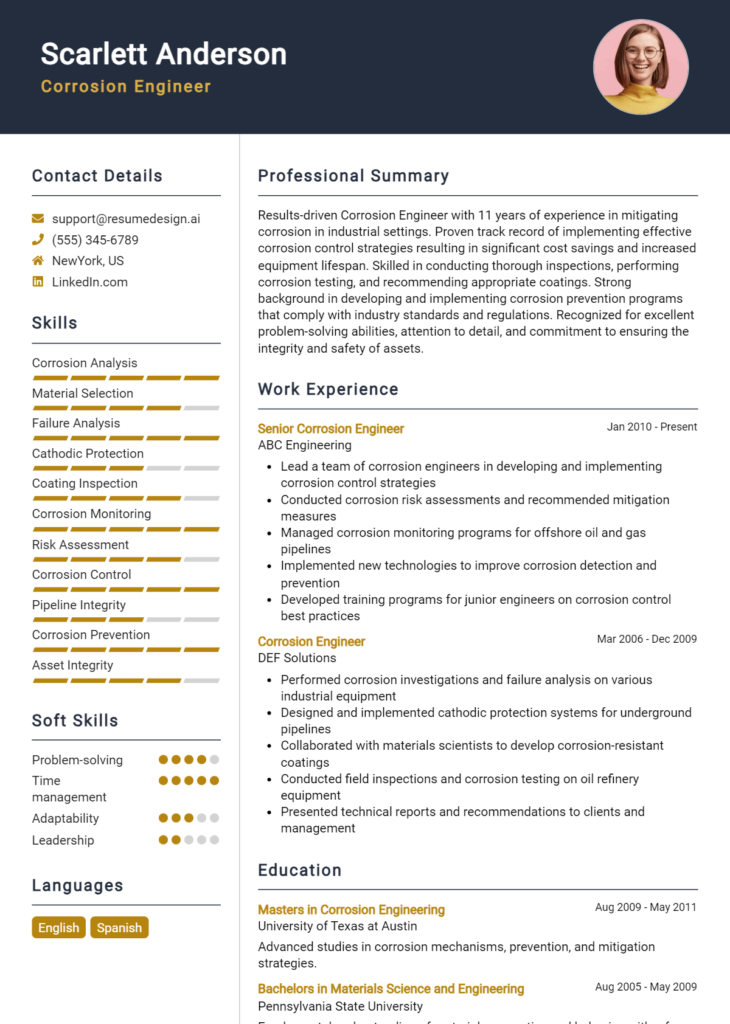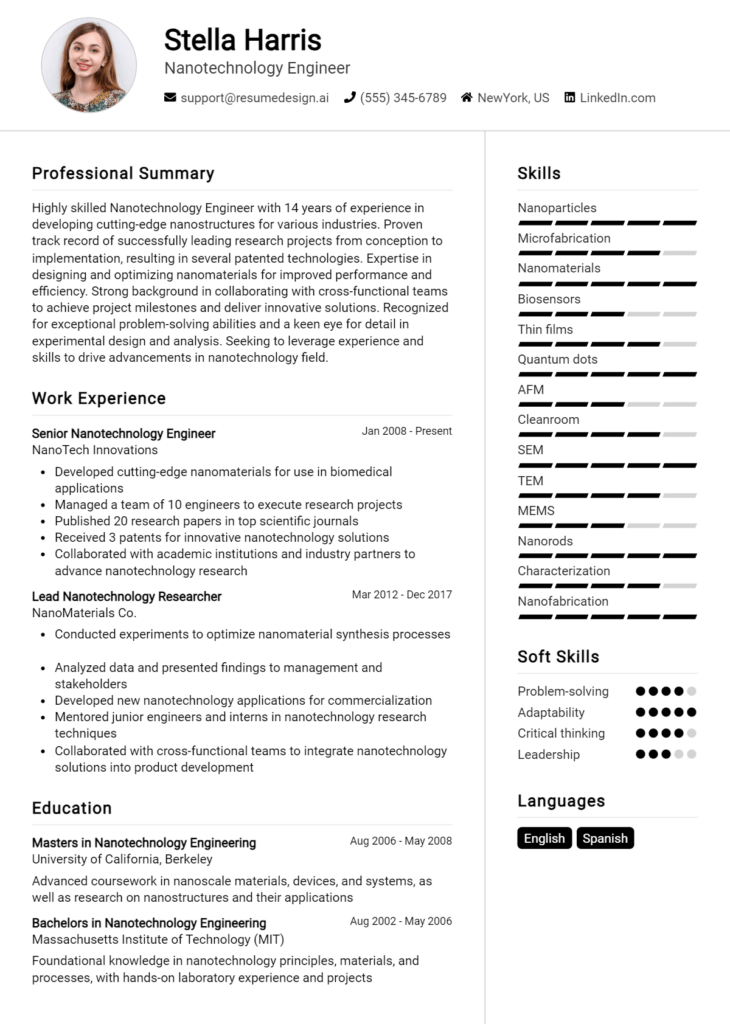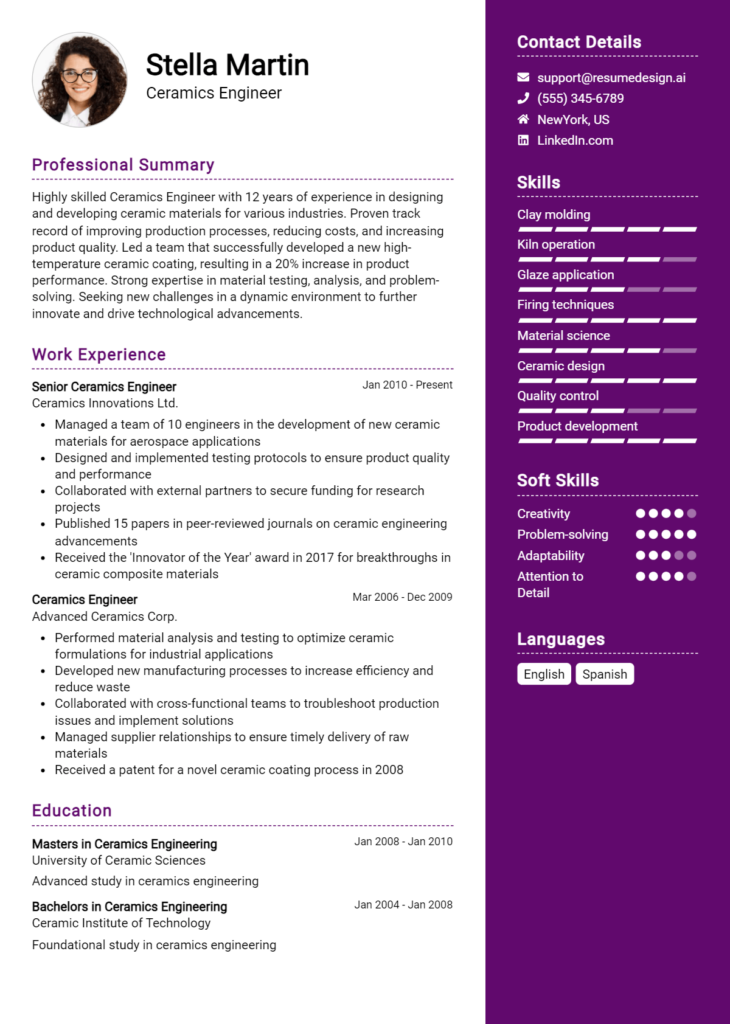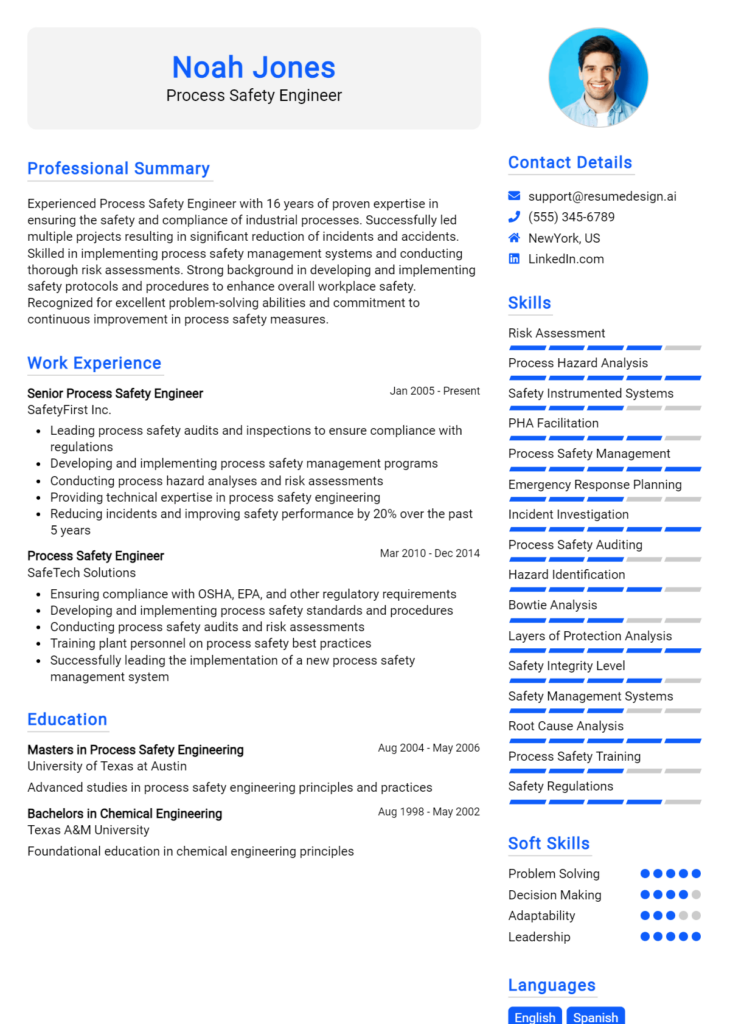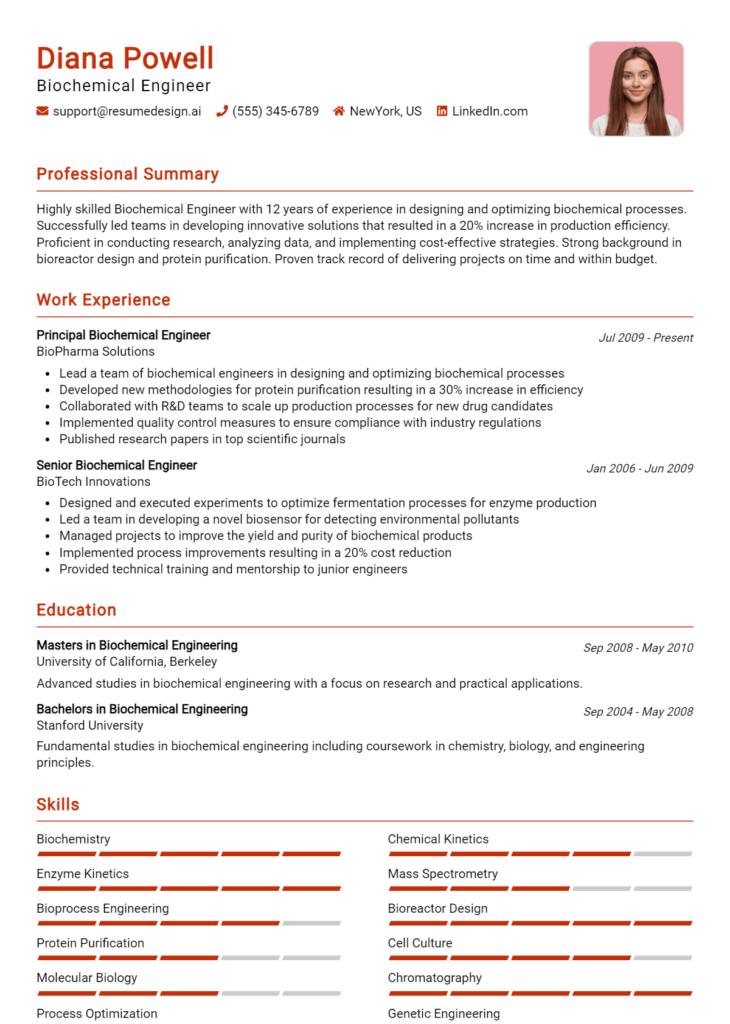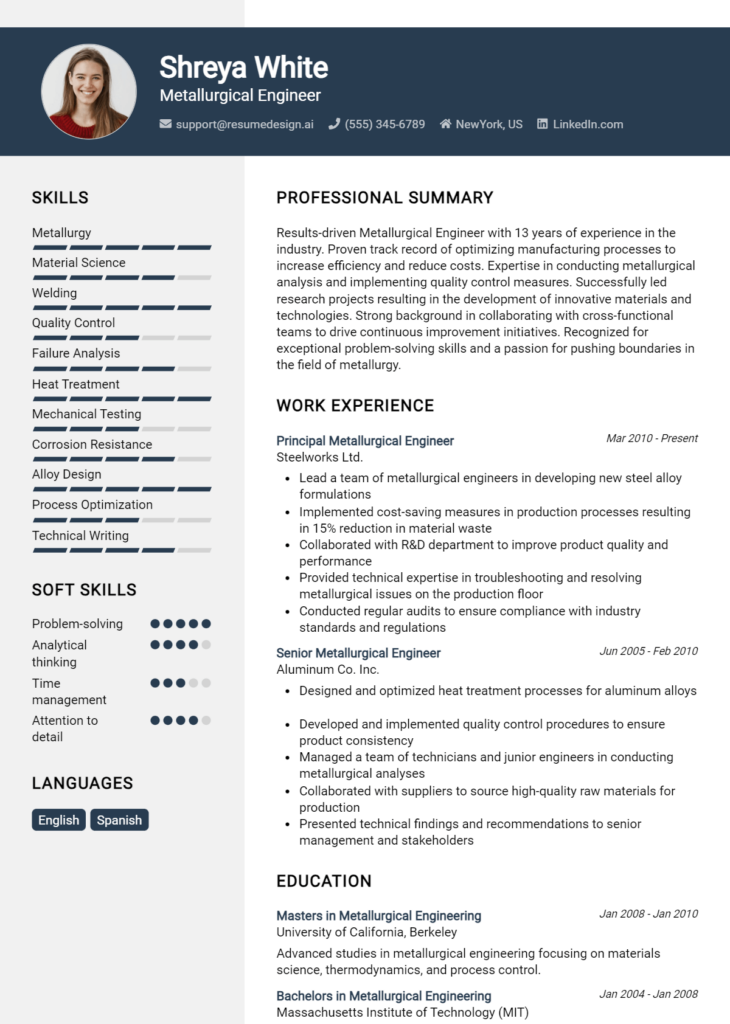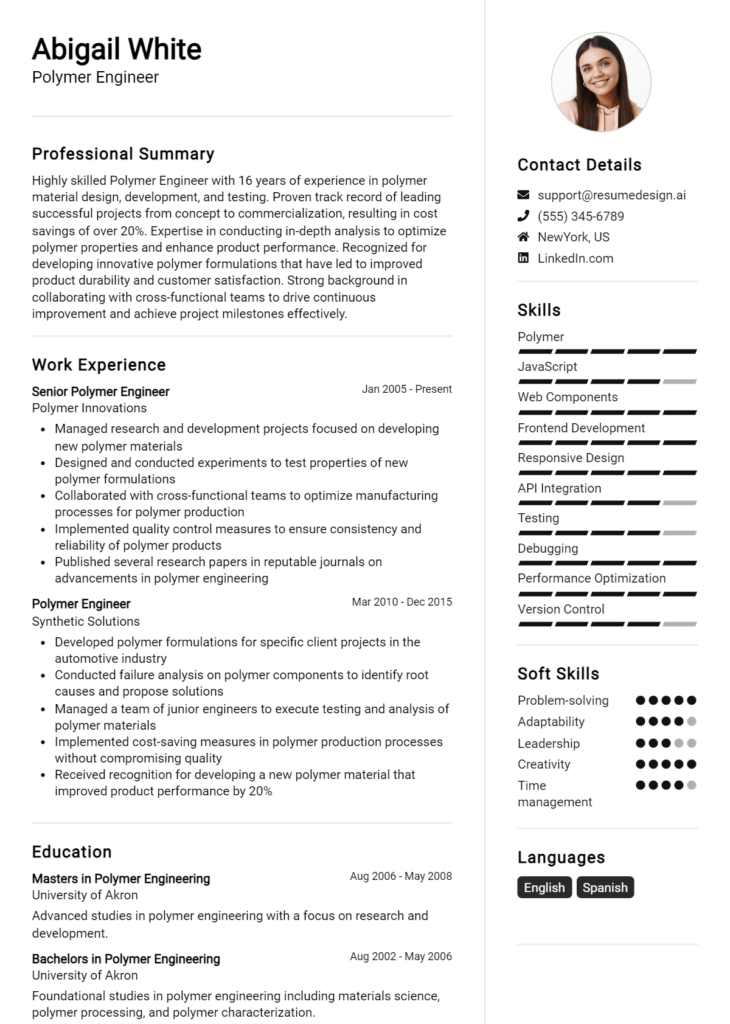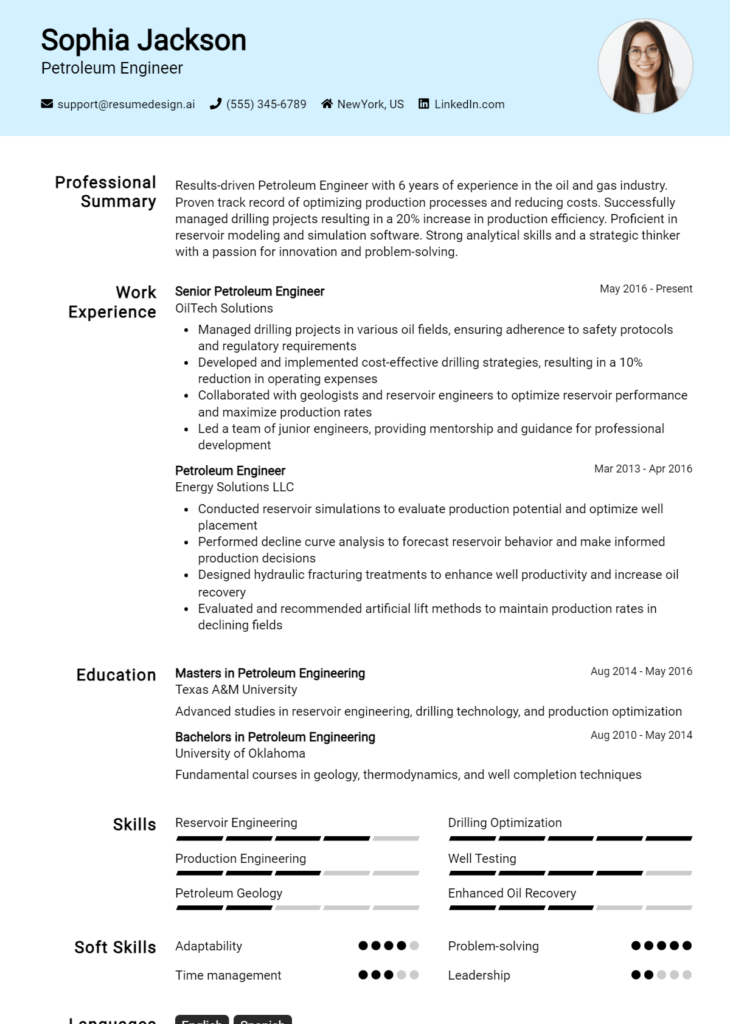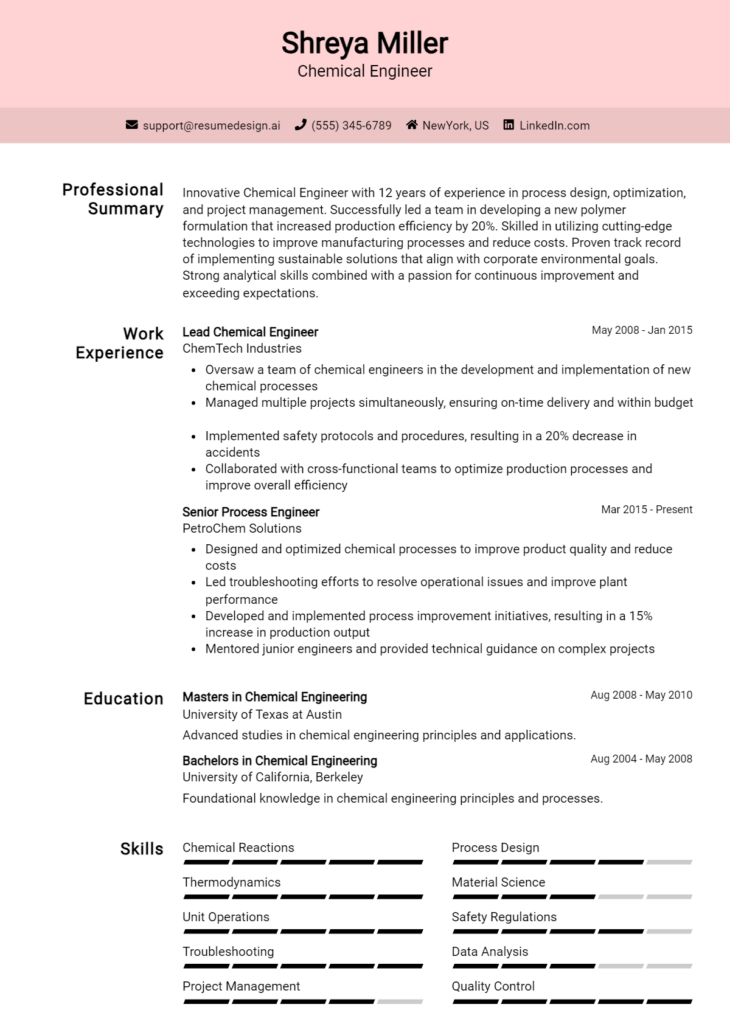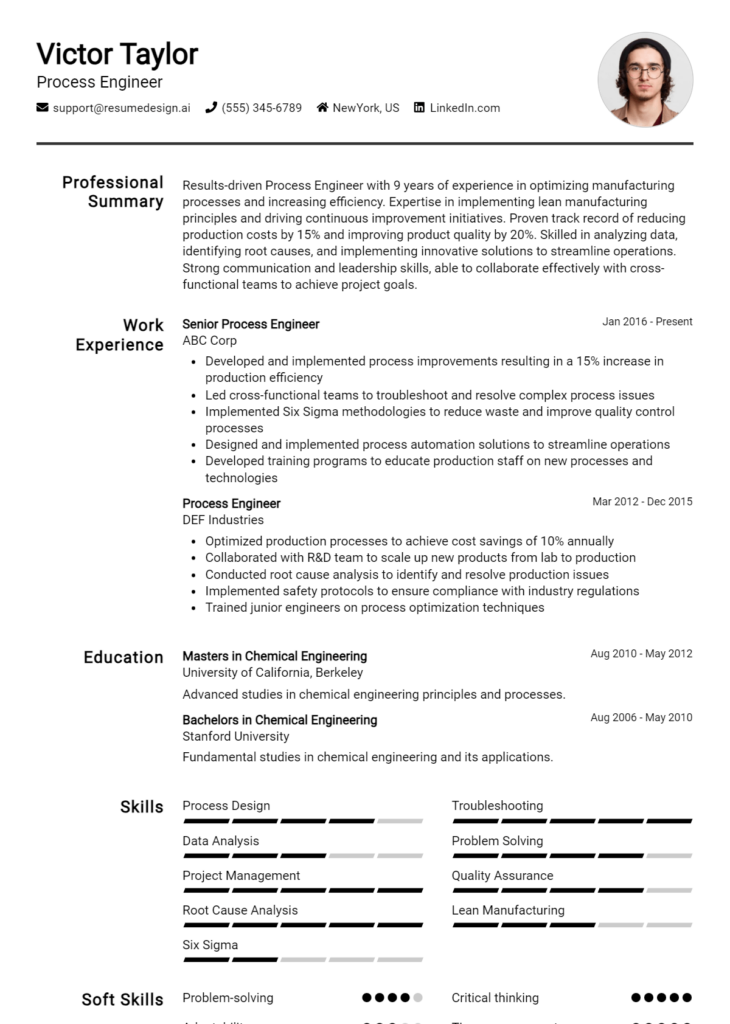Materials Engineer Core Responsibilities
A Materials Engineer plays a crucial role in developing, testing, and selecting materials used in various applications, bridging the gap between design, manufacturing, and quality assurance departments. Essential skills include strong technical acumen, operational knowledge, and effective problem-solving capabilities. These competencies help ensure that materials meet performance standards, enhance product durability, and contribute to cost efficiency. A well-structured resume that highlights these qualifications is vital for showcasing a candidate’s potential to support organizational goals.
Common Responsibilities Listed on Materials Engineer Resume
- Develop and evaluate materials for new products and applications.
- Conduct failure analysis and material testing to improve product reliability.
- Collaborate with cross-functional teams to optimize material selection.
- Research and implement advanced materials and processing techniques.
- Ensure compliance with industry standards and regulations.
- Document findings and prepare technical reports for stakeholders.
- Assist in the development of manufacturing processes and specifications.
- Monitor material performance and suggest improvements.
- Provide technical support and guidance to manufacturing teams.
- Participate in project planning and budgeting related to materials.
- Stay updated on emerging materials technologies and trends.
High-Level Resume Tips for Materials Engineer Professionals
In the competitive landscape of materials engineering, a well-crafted resume serves as your first opportunity to make a lasting impression on potential employers. It is crucial for professionals in this field to present a resume that not only highlights their technical skills and expertise but also showcases their achievements and contributions to past projects. A strong resume can differentiate you from other candidates, demonstrating not just your qualifications but also your potential value to a future employer. This guide will provide practical and actionable resume tips specifically tailored for Materials Engineer professionals, ensuring your application stands out in a crowded job market.
Top Resume Tips for Materials Engineer Professionals
- Tailor your resume to each job description by incorporating relevant keywords and phrases that match the requirements of the position.
- Highlight your educational background, including any specialized training or certifications in materials science and engineering.
- Showcase relevant experience by providing specific examples of projects you've worked on, emphasizing your role and contributions.
- Quantify your achievements by using metrics and data to illustrate the impact of your work, such as cost savings, efficiency improvements, or successful project completions.
- Include industry-specific skills such as knowledge of material properties, testing methods, and manufacturing processes that are relevant to the position.
- Utilize a clear and professional format, making sure your resume is easy to read and visually appealing, which reflects your attention to detail.
- Incorporate soft skills like teamwork, problem-solving, and communication, which are vital in collaborative engineering environments.
- Consider adding a summary statement at the top of your resume that encapsulates your experience, skills, and career goals in materials engineering.
- Keep your resume concise, ideally one page, focusing on the most relevant and recent experiences to make a strong impact.
By implementing these tips, you can significantly enhance your resume's effectiveness and increase your chances of landing a job in the materials engineer field. A focused and polished resume that accurately reflects your skills and achievements will not only attract the attention of hiring managers but also set the stage for future opportunities in this dynamic profession.
Why Resume Headlines & Titles are Important for Materials Engineer
In the competitive field of materials engineering, a well-crafted resume headline or title serves as a critical first impression for potential employers. A strong headline can capture the attention of hiring managers in an instant, summarizing a candidate's key qualifications in a single impactful phrase. It should be concise, relevant, and tailored specifically to the job being applied for, effectively reflecting the applicant's expertise and unique value proposition. By making a powerful statement right at the top, candidates can set the tone for the rest of their resume and significantly enhance their chances of standing out in a crowded job market.
Best Practices for Crafting Resume Headlines for Materials Engineer
- Keep it concise: Aim for a short, impactful phrase that conveys your qualifications.
- Be specific: Tailor your headline to the specific materials engineering position you are applying for.
- Highlight key skills: Incorporate relevant technical and soft skills that align with the job description.
- Showcase experience: If applicable, include years of experience or notable achievements.
- Use action words: Start with strong action verbs to demonstrate your proactive approach and expertise.
- Prioritize relevance: Ensure the headline reflects the most important qualifications for the role.
- Stay professional: Avoid casual language and focus on maintaining a professional tone.
- Be unique: Differentiate yourself from other candidates by highlighting what sets you apart.
Example Resume Headlines for Materials Engineer
Strong Resume Headlines
Innovative Materials Engineer with 8+ Years in Composite Development
Results-Driven Materials Scientist Specializing in Nanotechnology Applications
Experienced Materials Engineer with Expertise in Sustainable Material Solutions
Dynamic Materials Engineer Focused on Advanced Metallurgical Processes
Weak Resume Headlines
Materials Engineer
Looking for a Job in Engineering
Experienced Professional
Strong headlines are effective because they immediately convey specific qualifications and areas of expertise, capturing the hiring manager's attention and providing a clear snapshot of the candidate's value. In contrast, weak headlines lack specificity and impact, leaving hiring managers with little insight into the applicant's qualifications or suitability for the role. By avoiding generic phrases and focusing on unique strengths, candidates can enhance their resumes and improve their chances of making a lasting impression.
Writing an Exceptional Materials Engineer Resume Summary
A resume summary is a crucial element for a Materials Engineer, as it serves as the first impression a hiring manager will have of a candidate's qualifications. An exceptional summary quickly captures attention by highlighting key skills, relevant experience, and notable accomplishments that align with the specific job role. This concise yet impactful section not only showcases the candidate's technical expertise but also underscores their ability to contribute to the company's goals. Tailoring the summary to the job being applied for is essential, ensuring that it resonates with the employer's needs and sets the stage for the rest of the resume.
Best Practices for Writing a Materials Engineer Resume Summary
- Quantify Achievements: Use numbers and metrics to demonstrate the impact of your work, such as percentage improvements or cost savings.
- Focus on Relevant Skills: Highlight technical skills and competencies that are directly applicable to the job description.
- Tailor to the Job Description: Customize your summary for each application to reflect the specific requirements and responsibilities of the position.
- Be Concise: Keep the summary brief, ideally between 2-4 sentences, to maintain the reader’s interest.
- Showcase Industry Knowledge: Mention familiarity with industry standards, materials, and technologies that relate to the prospective employer.
- Highlight Problem-Solving Abilities: Indicate your capacity to address challenges and improve processes within materials engineering.
- Include Soft Skills: Incorporate essential soft skills such as teamwork, communication, and project management, which are vital in engineering roles.
- Use Strong Action Verbs: Start sentences with dynamic verbs to convey initiative and impact, such as "developed," "optimized," or "led."
Example Materials Engineer Resume Summaries
Strong Resume Summaries
Results-driven Materials Engineer with over 5 years of experience in developing lightweight composites that reduced production costs by 15%. Proficient in CAD software and materials testing, with a strong focus on sustainability and innovation.
Dedicated Materials Engineer with a proven track record in optimizing manufacturing processes, leading to a 20% increase in efficiency. Expertise in polymer science and failure analysis, complemented by exceptional teamwork and communication skills.
Innovative Materials Engineer with a Master's degree and 7 years of experience in aerospace materials development. Successfully led a project that improved material strength by 30%, significantly enhancing product performance and customer satisfaction.
Weak Resume Summaries
Materials Engineer with experience in various projects looking for a new opportunity to utilize my skills.
Experienced engineer seeking a position in materials engineering to apply knowledge and skills.
The examples of strong resume summaries are considered effective because they clearly articulate specific achievements, relevant skills, and a direct connection to the role. They use quantifiable results, making the candidate's impact evident to potential employers. In contrast, the weak summaries are vague and lack any measurable outcomes or concrete details, failing to convey the candidate's qualifications or the value they could bring to the organization.
Work Experience Section for Materials Engineer Resume
The work experience section of a Materials Engineer resume is a critical component that highlights the candidate's technical skills, project management capabilities, and ability to deliver high-quality products. This section provides prospective employers with tangible evidence of your expertise in materials science and engineering, demonstrating your capacity to lead teams and contribute to innovative solutions. By quantifying achievements and aligning your experience with industry standards, you can effectively showcase your qualifications, making a compelling case for why you are the ideal candidate for the role.
Best Practices for Materials Engineer Work Experience
- Use action verbs to convey initiative and impact.
- Quantify achievements with specific metrics, such as cost savings or efficiency improvements.
- Highlight relevant technical skills and tools used in projects.
- Emphasize collaboration by detailing teamwork and cross-functional projects.
- Align experiences with industry standards and job requirements.
- Focus on results and outcomes rather than just duties performed.
- Include any leadership roles or project management experiences.
- Tailor the work experience section to reflect the specific job description.
Example Work Experiences for Materials Engineer
Strong Experiences
- Led a cross-functional team in the development of a new composite material, resulting in a 30% reduction in production costs and a 25% increase in product durability.
- Implemented a quality control process that decreased material waste by 15%, saving the company over $50,000 annually.
- Conducted extensive research on nanomaterials, contributing to a published paper in a peer-reviewed journal, enhancing the company’s reputation in the industry.
- Managed a project that successfully transitioned a legacy product line to a more sustainable material, increasing customer satisfaction scores by 40%.
Weak Experiences
- Worked on various material projects.
- Responsible for quality checks and testing.
- Participated in team meetings about materials.
- Helped with reporting and documentation tasks.
The examples provided illustrate a clear distinction between strong and weak experiences. Strong experiences are characterized by specific, quantifiable outcomes that demonstrate leadership, technical skills, and the ability to collaborate effectively. They provide potential employers with a clear understanding of the candidate's contributions. In contrast, weak experiences are vague and lack detail, failing to convey the candidate's impact or expertise. This highlights the importance of being precise and results-oriented in the work experience section of a resume.
Top Skills & Keywords for Materials Engineer Resume
As a Materials Engineer, showcasing the right skills on your resume is crucial for standing out in a competitive job market. Your skills not only highlight your technical expertise but also reflect your ability to solve complex problems, collaborate with diverse teams, and innovate in material design and application. A well-structured resume that emphasizes both hard and soft skills can significantly enhance your chances of landing an interview. It is essential to tailor these skills to align with the specific requirements of the job you are applying for, as this demonstrates your understanding of the role and your commitment to contributing effectively to the organization.
Top Hard & Soft Skills for Materials Engineer
Soft Skills
- Critical thinking
- Problem-solving
- Communication
- Team collaboration
- Time management
- Adaptability
- Attention to detail
- Creativity
- Project management
- Leadership
Hard Skills
- Material characterization techniques
- CAD software proficiency (e.g., SolidWorks, AutoCAD)
- Knowledge of manufacturing processes
- Materials selection and testing
- Failure analysis
- Statistical analysis and data interpretation
- Thermodynamics and physical metallurgy
- Polymer science
- Coating technology
- Mechanical properties testing
Incorporating these skills into your resume, alongside a strong demonstration of your work experience, will give you a comprehensive edge in your job applications.
Stand Out with a Winning Materials Engineer Cover Letter
Dear [Hiring Manager's Name],
I am writing to express my interest in the Materials Engineer position at [Company Name], as advertised on [where you found the job listing]. With a solid background in materials science and engineering, coupled with hands-on experience in materials characterization and development, I am excited about the opportunity to contribute to your innovative projects and help drive the success of your engineering team.
In my previous role at [Previous Company Name], I successfully led a project that involved the selection and testing of advanced materials for aerospace applications, which resulted in a 15% weight reduction while enhancing the overall performance of the components. My expertise in conducting thorough material analyses, combined with proficiency in using tools such as SEM and XRD, has equipped me with the skills to identify optimal materials that meet stringent industry standards. I am also well-versed in collaborating with cross-functional teams to troubleshoot material-related issues and ensure the seamless integration of new materials into existing production processes.
I am particularly drawn to [Company Name] because of its commitment to sustainability and innovation in materials engineering. I admire your recent efforts in developing eco-friendly materials and believe that my experience in green materials research aligns perfectly with your mission. I am eager to bring my knowledge of sustainable practices and my passion for continuous improvement to your team, ultimately contributing to projects that have a positive impact on both the environment and the industry.
Thank you for considering my application. I look forward to the opportunity to discuss how my skills and experiences can contribute to the success of [Company Name]. I am excited about the possibility of joining your team and helping to advance your engineering initiatives. Please feel free to contact me at [your phone number] or [your email address] to arrange a convenient time for a conversation.
Sincerely,
[Your Name]
Common Mistakes to Avoid in a Materials Engineer Resume
When crafting a resume as a Materials Engineer, it's crucial to avoid common pitfalls that can detract from your qualifications and experiences. A well-structured resume not only highlights your technical skills but also showcases your ability to communicate effectively. Here are some common mistakes to steer clear of when creating your Materials Engineer resume:
Generic Objective Statement: Using a one-size-fits-all objective statement can fail to capture your specific goals and aspirations. Tailor your statement to reflect the role you are applying for.
Neglecting Keywords: Failing to include relevant industry-specific keywords can result in your resume being overlooked by Applicant Tracking Systems (ATS). Research job descriptions to identify these keywords.
Overloading with Technical Jargon: While technical skills are essential, excessive jargon can make your resume difficult to understand. Aim for a balance that communicates expertise without alienating non-technical readers.
Inconsistent Formatting: Using varied fonts, sizes, or styles can make your resume look unprofessional. Maintain a consistent format to enhance readability and present a polished appearance.
Lack of Quantifiable Achievements: Simply listing job responsibilities without quantifiable outcomes makes it hard to demonstrate your impact. Use metrics and specific examples to illustrate your contributions.
Ignoring Soft Skills: Materials Engineering is not only about technical prowess; soft skills like teamwork, communication, and problem-solving are equally important. Highlight these skills to present a well-rounded profile.
Outdated Information: Including outdated certifications, skills, or experiences can mislead employers about your current qualifications. Regularly update your resume to reflect your most relevant and recent accomplishments.
Lengthy Descriptions: Overly verbose job descriptions can dilute the impact of your achievements. Aim for concise bullet points that effectively convey your contributions and skills.
Conclusion
As a Materials Engineer, your role is pivotal in the development and application of materials that meet specific needs across various industries. This article covered essential skills including an understanding of material properties, advanced materials characterization techniques, and the ability to work collaboratively within interdisciplinary teams.
Moreover, we highlighted the importance of staying updated with the latest advancements in materials science and technology, as well as the need for strong analytical and problem-solving skills. Effective communication is also crucial, given that Materials Engineers often have to present their findings and recommendations to non-specialist stakeholders.
In conclusion, if you're looking to advance your career in this dynamic field, it’s essential to ensure your resume reflects your skills and experiences accurately. Take a moment to review your Materials Engineer Resume and consider using the available resources to enhance its effectiveness. Explore resume templates, utilize the resume builder, check out resume examples, and create impactful cover letter templates. Make sure your application materials stand out and showcase your expertise in materials engineering!

